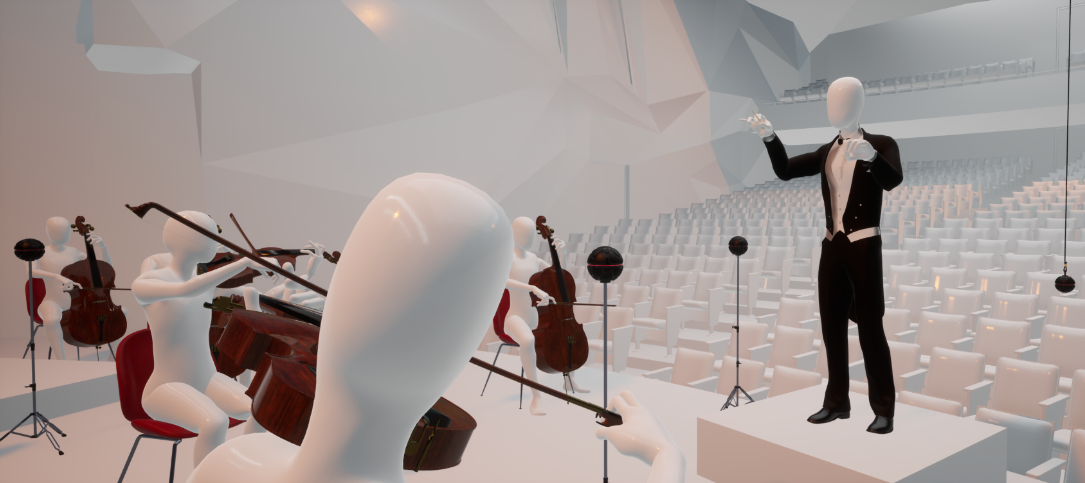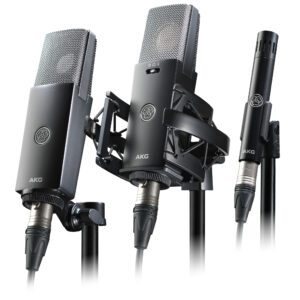
We only recommend products that we use and believe in. When you purchase through links on our site, we may earn an affiliate commission.
Zylia, an industry leader in the field of 3D audio recording and Poznań Philharmonic Orchestra premiered on YouTube and Facebook a virtual concert, where each listener can enact their own audio path and get a real being-there sound experience. 34 musicians on stage and 30 ZYLIA 3’rd order Ambisonics microphones showed the possibilities of ZYLIA 6 Degrees of Freedom Navigable Audio system – a breaking through approach to sound streaming.
Streaming is the key
American “billboard” magazine publishes every week all the live streams and virtual concerts to watch during coronavirus crisis. Since march 2020, they put on the list over 800 events, and still it is only the tip of the iceberg. People can find there almost everything: concerts, digital festivals, virtual exhibitions, talking panels, readings, movies, theater plays and many others. Musicians, comedians, actors, and television personalities are connecting with their public through Facebook, YouTube, Tweeter, Instagram, Twitch, Zoom, TikTok and their own websites. Some perform live at their homes or at venues without an in-house audience. Others share their pre-recorded material. All of them try to cheer up their fans and offset their losses from canceled or postponed live events. Either way, the public demand for streaming footage is huge and still grows.
How to stand out?
Big and small players on the creative art market already know, that streaming (live or pre-recorded) must be their plan A. If they want to stay in business they must find a way to share their work through the Internet. Moreover, they must find the way to stand out of the forming crowd. If the high quality of video in streamed materials is generally speaking not a problem, thanks to easily accessible advanced filming technology, it is still much to do in the field of audio. The unique on a global scale 6 Degrees of Freedom Navigable Audio recording system delivered by Polish Zylia, can be a breakthrough in the streaming of sound.
In the last months, we faced a problem of making concerts without a public. We’ve been broadcasting the concerts but it produced a lot of problems on how to show the acoustic of the hall, – says Łukasz Borowicz, the Principal Guest Conductor of Poznań Philharmonic Orchestra (Poland). This is something very important in the ZYLIA system – it makes it possible to listen to the orchestra not only from one fixed place. You can go to the balcony or the last row and acoustic changes, – he adds.
The proof of concept
ZYLIA 6 Degrees of Freedom Navigable Audio solution – 6 directions of possible movement: up and down, left and right, forward and backwards, rotation left and right, tilting forward and backward, rolling sideways – used during Poznań Philharmonic Orchestra concert allowed to record an entire sound field around and within the performance. For a common listener, it means that while listening they can walk through the audio space freely. For instance, they can approach the stage, or even step on the stage to stand next to the musician. At every point, the sound they hear is a bit different, as in real life.
How exactly was it recorded?
- 30 ZM-1S mics – 3rd order Ambisonics microphones with synchronization
- Two MacBooks pro – for recording
- A single PC Linux workstation – as a backup for recordings
- 600 audio channels – 20 channels from each ZM-1S mic multiplied by 30 units
“When we look into the future, what we see is a completely different world of interaction with creative art. We see streaming platforms enabling people to participate in concerts of any artists they want. Platforms that they can enter from their homes and join the experience with their friends. We see hyper-realistic games, both visually and audibly, allowing players to fully immerse themselves in the plot. Finally, we see virtual reality creations, available for everybody from anywhere in the world and limited only by the imagination of their designers. ZYLIA Navigable Audio is a huge step in that direction, and we are very proud of the impact that we are having on the future of 3D audio technology,”
– says Tomasz Żernicki, CEO of Zylia.
“I am not a fan of experiencing classical music through electronic media. – says Wojciech Nentwig, director of the Poznań Philharmonic. However, I admit that the recording made by the ZYLIA team surprised me very pleasantly. I am glad that thanks to this innovative form of recording, classical music can reach even wider audiences. Congratulations to the ZYLIA team for an interesting research and such achievement.”
Zylia offers a complete solution for navigable audio, which can be used for a wide range of projects in the field of music, game, VR, sport, academic research and many others.
See how it was done!
Information about the Poznań Philharmonic Orchestra:
The Orchestra of the Poznań Philharmonic, a cultural institution of the self-government of the Greater Poland Voivodeship, is one of the most famous and respected Polish symphony orchestras. Its conductor-chief is Marek Pijarowski, and its first guest conductor is Łukasz Borowicz.
The orchestra’s ensemble has given concerts in almost all European countries and participated in many important international music festivals. It accompanied the participants of the first post-war Chopin Competition in Warsaw, and since 1952 it accompanies the finalists of the Henryk Wieniawski International Violin Competition in Poznań.
The orchestra has performed with world-famous conductors (including: Andrzej Boreyko, Christopher Hogwood, Zdeněk Mácal, Paul McCreesh and Sir Neville Marriner) and soloists (including Piotr Anderszewski, Martha Argerich, Piotr Beczała, Rafał Blechacz, Ida Haendel, Konstanty Andrzej Kulka, Aleksandra Kurzak, Witold Małcużyński, Midori, Dawid and Igor Ojstrachowie, Ewa Podleś, Maurizio Pollini, Samuel Ramey, Światosław Richter, Mścisław Rostropowicz, Artur Rubinstein, Gil Shaham, Wanda Wiłkomirska, Christian Zacharias, Krystian Zimerman, Nikolaj Znaider).
The Poznań Philharmonic Orchestra has made numerous recordings, including the first world recording “Quo vadis” by Feliks Nowowiejski, which in 2018 received the prestigious international ICMA award.
More information about the Poznań Philharmonic: www.filharmoniapoznanska.pl
About Zylia:
Zylia develops innovative, world-class 3D audio recording technologies and turns them into products that improve the lives of musicians and audio creatives. With a passionate and dedicated team of experts in music production, audio research, software, business and product development, the company crafts and delivers products with the potential to redefine and revolutionize the way 3D sound and musical performances are recorded and produced. Leveraging their personal experience as musicians and tech gurus, along with input from music and audio communities around the world, Zylia’s experts bring musicians agile recording tools that make it easy to be creative in any environment.
More information is available at www.zylia.co.



